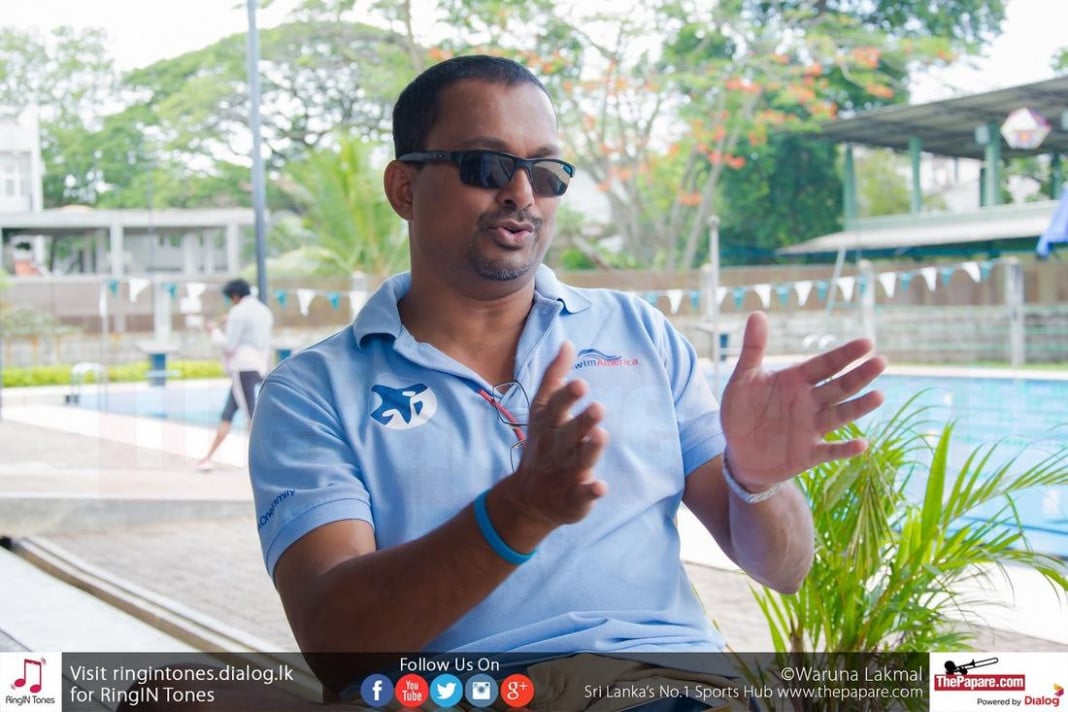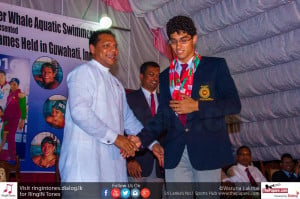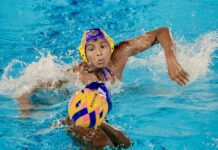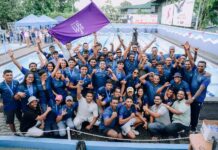Five years ago when Manoj Abeysinghe took the untrodden path of progressing as a swimming coach in a professional capacity, it was a decision that changed his life and paved the way for him to inspire a generation of young athletes to take up swimming.
In 2010 when Manoj landed in the country from the United States to establish himself as a professional swimming coach, it was his passion for the sport that motivated him to continue his dream, putting aside his career discipline in economics. Pursuing the dream, Killer Whale Aquatics was founded in August of the same year, paving the way for hundreds of enthusiastic swimmers to develop their skills.
Killer Whale Aquatics has the reputation of being the most accomplished swimming club in the country, following the success of its club members at the South Asian Games, who won almost 50% of the total medals won by the Sri Lankan team in the competition. The KWA swimmers excelled in the recently concluded South Asian Games winning 7 gold, 8 silver and 4 bronze medals lifting the club to its peak.
Cherishing the success story of the swimming, Manoj brings to light the fact that the lack of qualified coaching staff will be a huge obstacle that will affect the sport in the longer run. Over the years, Sri Lanka has been able to produce a considerable bunch of talented swimmers but the progress made in the coaching area has been inadequate.
Killer Whale Aquatics excel at Swimming nationals
“It takes a lot of perseverance to choose a path with a lot of thorns in it, when you have an easier path to travel. This was a call that I took few years back when I chose my passion as my career”
In a social system where the job title coaching itself seems to be looked down upon, little do the public acknowledge that it is this profession that moulds the future of the sporting world. Here in Sri Lanka, the swimming coaches are the MVPs of the system.
“Here in Sri Lanka we do not have access to the latest technology, nor the high-class equipment or the quality education for the coaches. A coach has to do his coaching job but the scenario here is that the coaches play multiple roles as the trainer and a nutritionist. “
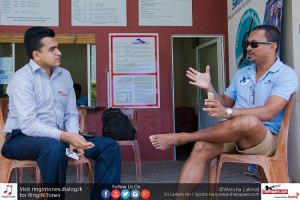
Abeysinghe accredits the US swimming system to be the best in the world and throughout the few years of his coaching career, he has tried his best to implement the system in Sri Lanka too.
“The USA swimming program is one of the best programs in the world. If you take the Olympics, the total number of medals the American swimming program wins is lot more than the total amount America wins”
Manoj recalls the times when he was an assistant coach in the swimming academy in the States and was provided the opportunity to fill in the shoes of his senior coach at a championship and that gave him the initial start as a coach.
“Unfortunately, there is little or no room for coaches to come up in the ranks. I am in my forties and someone will need to come and fill my shoes. There are other distinguished coaches in the country and who would be the people that replace them in the coming years to coach the younger generation?”
Good remuneration and incentives are essential in retaining swimming coaches in a system where coaching is still not considered a prospective coaching career.
Keeping aside the lack in the coaching department, Sri Lanka has successfully been able to climb the ladder in the sport in the past few years. Strict competition between the two frontrunners of swimming in the country; Killer Whale Aquatics and Rainbow Swimming have helped gradually increase the standard of swimming in the country.
Manoj Abeysinghe’s son Matthew Abeysinghe led the swimming team of Sri Lanka to a record best standing in the recently concluded 2016 South Asian Games and broke the 25-year-old record that was set by Julian Bolling securing seven gold medals, including two records.
While Matthew is on the lookout for Olympic qualification timing in the coming months, Manoj ends his words stating the difficulty he faces when he coaches his own son;
“It is always difficult to coach one’s own children. At the pool, you have to be his coach and not his father. At home, I cannot be a coach but have to be a father. It is a tough choice on my side and is one of the hardest things I do as a coach.”

